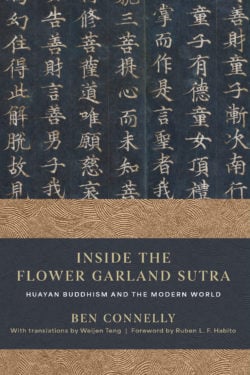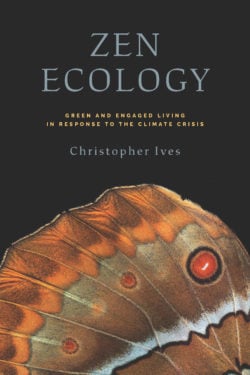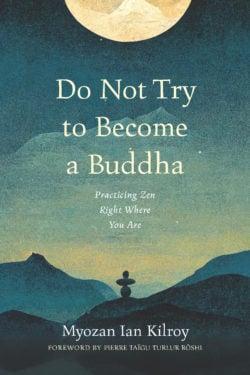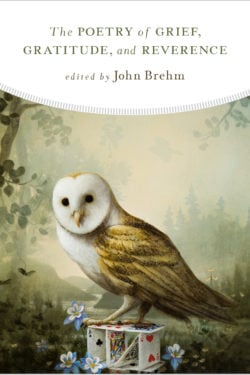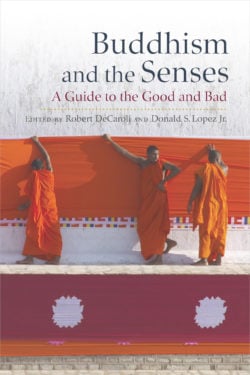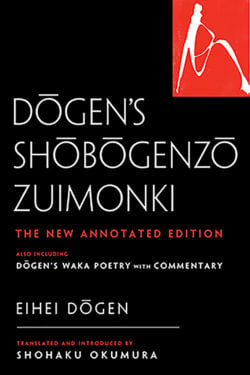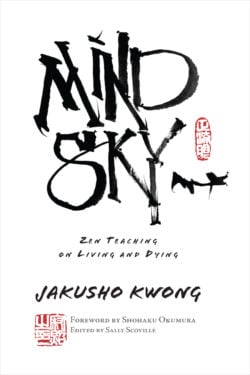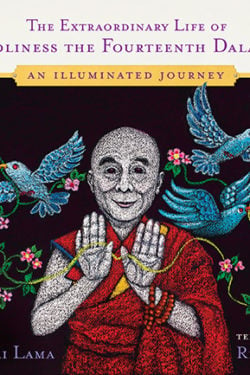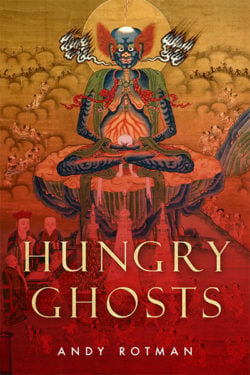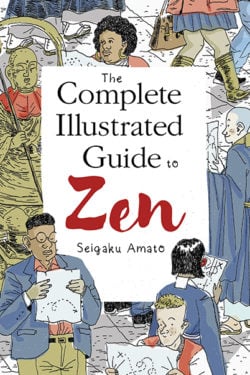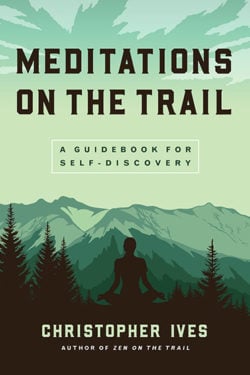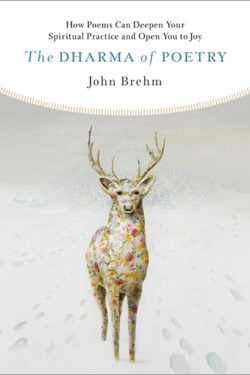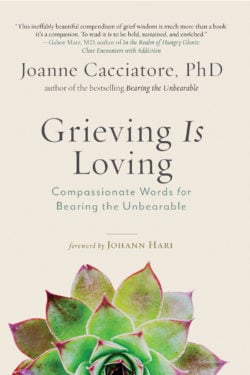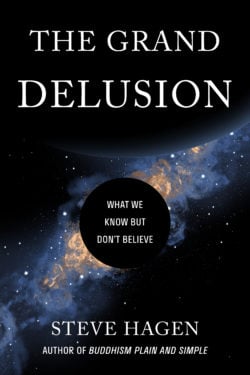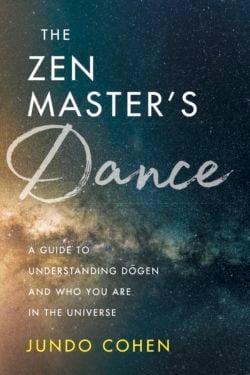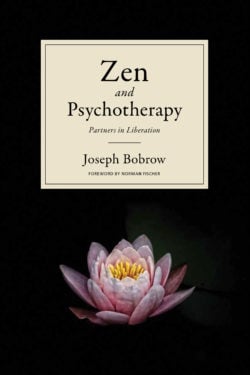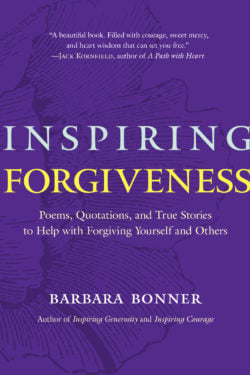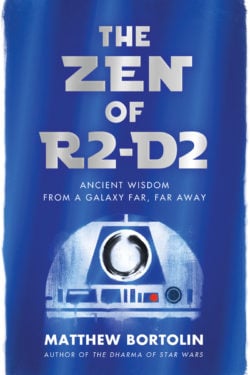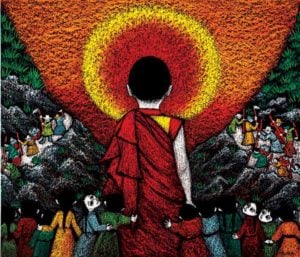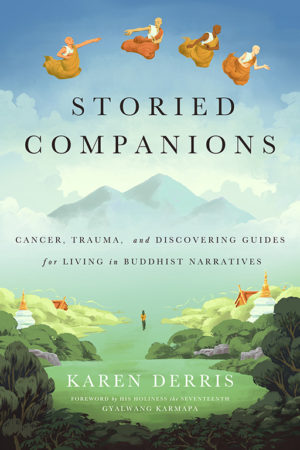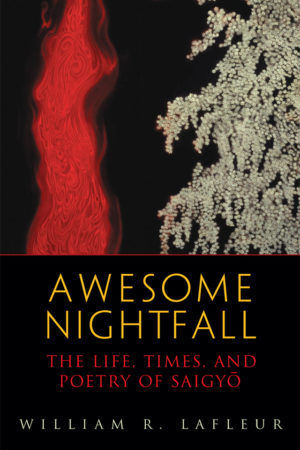William R. LaFleur received his PhD from the University of Chicago, where he studied with Joseph Kitagawa and Mircea Eliade. Over the course of his career, LaFleur taught at Princeton University, UCLA, Sophia University, Tokyo, and at the University of Pennsylvania, where he was the E. Dale Saunders Professor of Japanese Studies. In addition to his work on Buddhist cosmology and the “mind” of medieval Japan, he was a gifted translator and interpreter of poetry and published two volumes on the medieval monk-poet Saigyō. He was deeply interested in Zen, especially as a resource for contemporary thought. He wrote and edited several books and essays, introducing to Western readers the work of the thirteenth-century Zen master Dōgen, the Kyoto-school figure Masao Abé, and the twentieth-century philosopher and cultural historian Watsuji Tetsurō. In 1989, he became the first non-Japanese to win the Watsuji Tetsurō Cultural Prize. In his later career, while continuing to study medieval Japanese religion and literature, he produced pioneering studies of Japanese bioethics, highlighting contrasts with Western approaches to such issues as abortion, organ transplants, and medical definitions of death. Altogether, he wrote or edited nine books. He passed away in 2010.
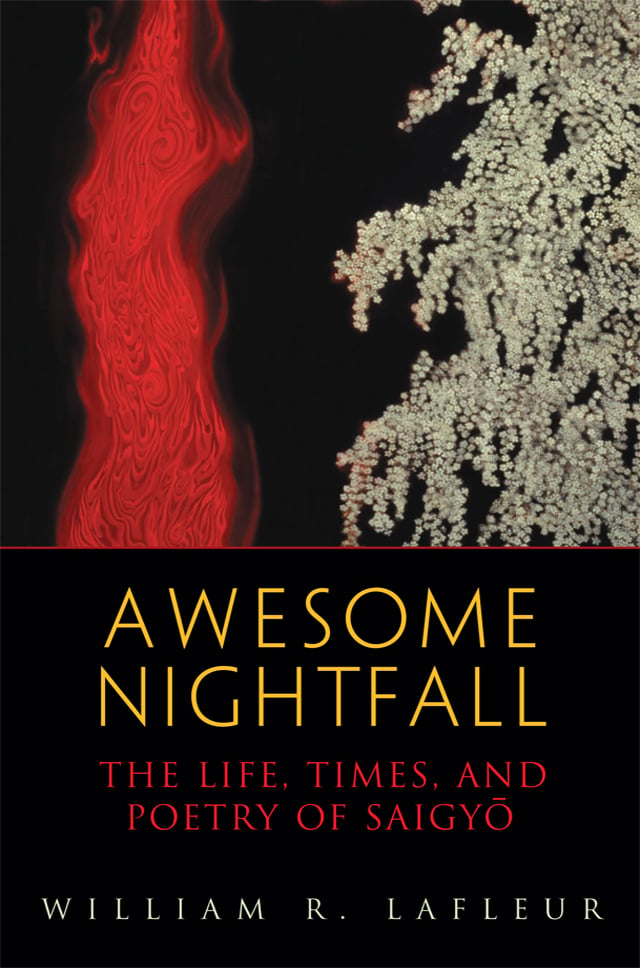
“Saigyō’s poems are masterful mind-language challenges. Bill LaFleur’s deeply understanding translations present us with the snake-like energy of the syntax, and the illuminated world that was called out by one man’s lifetime of walking and meditation is again right here.”—Gary Snyder
AWESOME NIGHTFALL
The Life, Times, and Poetry of Saigyō
- Add to Cart Paperback $15.95
- Add to Cart eBook $11.99
Awesome Nightfall: The Life, Times, and Poetry of Saigyō captures the power of Saigyō’s poetry and this previously overlooked poet’s keen insight into the social and political world of medieval Japan. It also offers a fascinating look into the world of Japanese Buddhism prior to the wholesale influence of Zen.
Discover More
Inside the Flower Garland Sutra
Available early! Use code fgs20 and get 20% off Inside the Flower Garland Sutra through July 14.
A Soto Zen teacher explores the core teachings of the ancient Flower Garland school of Buddhism through an innovative and engaging narrative showing how to put these teachings into practice.
Huayan Buddhism arose in the sixth century in China rooted in the Mahayana Flower Garland Sutra. The teachings of Huayan and the sutra that inspired it had a profound influence on Chan and Zen. Huayan is relational, practical, and positive. Its emphasis on interdependence, celebration of the sensual world, and diversity of people and practices provides inspiration for what Thich Nhat Hanh called “engaged Buddhism”.
With Inside the Flower Garland Sutra Zen teacher Ben Connelly explains the significance of Huayan teachings for Buddhist practice. Each chapter is a commentary on one of the thirty lines of Uisang’s “Song of Dharma Nature”—a seminal Korean text that summarizes key aspects of Huayan thought—thus providing a broad overview of Huayan teachings and their practical implications for contemporary life, with a mix of testimonies from real-life situations and references to influential Buddhist texts.
Arising fifteen hundred years ago, Huayan has made a deep impact on East Asian Buddhism, and has much to offer during this era when many folks see ever-deepening divisions. Connelly explores how Huayan offers particular wisdom for those concerned about how to care for their own lives as they work to end harms such as ecological devastation, poverty, militarism, addiction, marginalization, and exploitation.
Zen Ecology
Discover a way of living that can help you slow down and stay grounded—and at the same time reduce your ecological impact and engage more fully with the climate crisis.
It may seem as though living ecologically and engaging in activism sacrifices our own enjoyment and happiness on the altar of doing the right thing. In this book, professor, naturalist, and Buddhist author Christopher Ives offers an alternative: a way of living that can actually be more fulfilling than the modern consumerist lifestyle. Rather than deprivation, it can bring us richness.
In Zen Ecology, Chris outlines his environmental ethic as a series of concentric circles, beginning with ourselves and then moving outward into our communities, all the while focusing on spaciousness, mindfulness, generosity, and contentment. At the individual level, we deal with distraction, clutter, and ecological harm. Here, Chris offers ways to help us pay attention, simplify our lives, and lower our impact. Then, we explore how to envision our home as a “place of the Way,” with Zen monastic life as a model for this—without having to be a monk! Next, we realize our embeddedness in nature and emplace ourselves in community with others, including other forms of life. Finally, we build on this basis to engage in activism to create a world that is more supportive of ecological health and spiritual fulfillment.
In this way, we avoid the two extremes of apathy and burnout, and uncover a way of living that is simple, joyful, embedded in nature, connected to others in community, and supportive of collective action.
You may also be interested in Chris’s other books, Zen on the Trail, which explores the broad question of how to be outside in a meditative way, and Meditations on the Trail, which offers do-anywhere meditations that will help you deepen your connection to nature and yourself.
Do Not Try to Become a Buddha
A Zen Buddhist priest paints a picture of Zen in Ireland in this collection of short essays.
In this collection of short essays, Irish Soto Zen priest Myozan Ian Kilroy describes how he came to practice Zen, introduces some basics of Zen philosophy, and recalls the challenges of establishing a Zen Buddhist community in Catholic-dominated Ireland. Along the way, he explores the rituals and practices that Zen brings to everyday life, from holidays to weddings to birth ceremonies to funerals. A former journalist, Rev. Myozan’s clear yet entertaining storytelling style paints a clear picture of how Zen has adapted to the culture and traditions of Ireland.
The Poetry of Grief, Gratitude, and Reverence
Explorations on a journey through the darkest and brightest moments of our lives, the poems gathered here are explorations of loss, of thanksgiving, of transformation. Some show a path forward and others simply acknowledge and empathize with where we are, but all are celebrations of poetry’s ability to express what seemed otherwise inexpressible, to touch deep inside our hearts—and also pull ourselves out of our selves and into greater connection with the world around us.
Includes poems by
Rainer Maria Rilke, Robert Frost, Elizabeth Bishop, Czesław Miłosz, Seamus Heaney, Billy Collins, Joy Harjo, Danusha Laméris, Ada Limón, Kevin Young, Arthur Sze, Ellen Bass, Li-Young Lee, Natasha Trethewey, and many more, plus the editor’s essay on appreciative attention.
John had recorded guided poetry meditations to accompany several of the poems found in this anthology. To learn more and listen to these meditations, please click here.
Listen to a Wisdom Dharma Chat with John and host Daniel Aitken recorded in October 2023.
Buddhism and The Senses
Across Buddhist traditions, the five senses—sight, sound, smell, taste, and touch—are perceived both positively and negatively. Share eminent scholars’ fascination and deep insight into what makes a sensuous experience good or bad.
Following the exhibition Encountering the Buddha: Art and Practice across Asia at the National Museum of Asian art, ten eminent scholars present their insights into Buddhism’s fascinating relation with the five senses (sight, sound, smell, taste, and touch), which careens between delight and disgust, rarely finding a middle way. While much of Buddhist literature is devoted to overcoming the attachment that dooms us to rebirth in samsara, primarily by deprecating sense experience and showing that whatever brings us sensual pleasure leads only to all manner of physical and mental pain, in texts such as the Lotus Sutra, sensory powers do not offer sensory pleasure but rather knowledge, clear observation, and ability to preach the Dharma. Considering such religiously and historically contingent ambiguity, this volume presents each of the five senses in two instantiations, the good and the bad, opening up the discourse on the senses across Buddhist traditions.
Just as the museum departed from tradition to incorporate sensory experiences into the exhibition, this volume is a new direction in scholarship to humanize Buddhist studies by foregrounding sensory experience and practice, inviting the reader to think about the senses in a focused manner and shifting our understanding of Buddhism from the conceptual to the material or practical, from the idealized to the human, from the abstract to the grounded, from the mind to the body.
Includes essays by Bryan J. Cuevas, Debra Diamond, D. Max Moerman, Reiko Ohnuma, James Robson, Melody Rod-ari, Kurtis R. Schaeffer, John Strong, and Lina Verchery.
Dogen’s Shōbōgenzō Zuimonki
Discover the teachings of the preeminent Zen Master Dōgen in his own words, written down by his Dharma successor, Koun Ejō. This edition includes both the Shōbōgenzō Zuimonki and translations of and commentary on Dōgen’s luminously evocative waka poetry.
Distinct from Dōgen’s similarly titled magnum opus (simply called the Shōbōgenzō), the Shōbōgenzō Zuimonki can be read as a highly practical manual of Buddhist practice. Consisting of straightforward and accessible teachings and making more limited use of the allusion, wordplay, and metaphor that characterize the essays in the Shōbōgenzō, this work is an essential read for any student of Zen Buddhism. Among the many topics covered, Dōgen especially emphasizes the following points: seeing impermanence, departing from the ego-centered self, being free from greed, giving up self-attachment, following the guidance of a true teacher, and the practice of zazen, specifically shikantaza, or “just sitting.” Additionally, this translation of the Shōbōgenzō Zuimonki has extensive notes, which help to provide you with a new way of approaching the text.
The collection of waka poems included in this volume are a beautiful artistic expression of the Dharma. Rarely seen in this large of a collection or with commentary, this poetry offers unique insight into an important expression of Dōgen’s teachings.
By the spring wind
my words are blown and scattered
people may see them
the song of flowers
These teachings, which have informed teachers and practitioners alike throughout the centuries, will deepen your knowledge, understanding, and experience of the Sōtō Zen tradition.
Mind Sky
“In Zen meditation, anything that comes in your mind will eventually leave, because nothing is permanent. A thought is like a cloud moving across the blue sky. Nothing can disturb that all-encompassing vastness. This is the Dharma.”
In a collection of talks and anecdotes, Jakusho Kwong-roshi, a Dharma successor of Shunryu Suzuki-roshi, presents his approach to Buddhist teaching. Containing photos of Kwong-roshi with his teachers, as well as a selection of his vibrant calligraphy, Mind Sky explores the profound beauty of Zen history and practice, nature, and the philosophy of the ancient Zen master Eihei Dōgen.
With an elegant simplicity, Kwong-roshi shows how Zen is experiential rather than intellectual. And with persistent practice, realization is already yours.
The Extraordinary Life of His Holiness the Fourteenth Dalai Lama
One of the most revered spiritual figures of our time—His Holiness the Fourteenth Dalai Lama—tells the story of his life in this intimate, timeless, and approachable book. Featuring luminous illustrations from world-renowned artist Rima Fujita and some never-before-shared details, it’s the perfect way to explore the life of the Dalai Lama. This simple yet powerful text combined with stunning artwork will captivate readers of all ages—and will take you on a mystical journey you won’t soon forget.
Also available in Tibetan.
Hungry Ghosts
“In this wonderful gem of a book, Andy Rotman offers us a compelling translation of a set of ten Sanskrit Buddhist stories about ‘hungry ghosts’ (preta) taken from the Avadānaśataka (“One Hundred Stories”), an important early Indian anthology of Buddhist narratives. Rotman has brought them into the limelight and shown how important they are for Buddhists and for all of us. Hungry Ghosts will become a standard work on the subject.”
—John Strong, Charles A. Dana Emeritus Professor of Religious and Asian Studies, Bates College
The realm of hungry ghosts is one of the unfortunate realms of rebirth in the Buddhist cycle of existence, and those reborn there are said to have led lives consumed by greed and spite. In one of the earliest sources about hungry ghosts, translated here, hungry ghosts know the error of their ways, and they sometimes appear among humans, like the ghosts that haunt Ebenezer Scrooge, as augurs of what may await. Artistic depictions of the travails of hungry ghosts are found throughout the Buddhist world, and some of the best examples are reproduced and richly described here. Discover how an understanding of the meanness (matsārya) that afflicts hungry ghosts illuminates the human condition, offering insight and inspiring compassion for readers both in ancient times and today.
“Rotman brings new life to old stories about hungry ghosts, and he provides unique insight into their development and their importance even for modern Buddhism. A must-read for students of Buddhist thought and art.”
—Monika Zin, Saxon Academy of Sciences and Humanities, Leipzig University
The Complete Illustrated Guide to Zen
The Complete Illustrated Guide to Zen offers a comprehensive overview of Soto Zen Buddhism in a delightfully captivating way. Complete with dynamic, detailed illustrations, Soto Zen Priest Seigaku Amato uses a semi-narrative style to take you on a visual tour of Buddhism and, using specifics to illuminate universals, dives deep into the practices and forms of Soto Zen.
Whether you are just taking your first step or have been practicing Zen for years, this creative and profound book will be a constant companion and guide on your journey as it explores topics such as:
- A brief history of Buddhism
- An iconographic overview of various buddhas and bodhisattvas
- An introduction to the various practices of Zen including meditation (zazen), work practice (samu), and meditative eating (oryoki)
- A what’s what of holidays, ceremonies, temple instruments, and religious vestments
- A how-to guide for setting up a home altar
“This is a cute book! But it’s not just cute, it’s also deep and profound, and is one of the best guides to Zen practice I have ever come across. The illustrations are delightful and the written sections are clear and easy to understand. I give it a million zillion stars!”—Brad Warner, author of Hardcore Zen
“I loved this book and smiled the whole way through. But don’t be fooled by its whimsy! There’s a wealth of experience, knowledge, and devotion behind these illustrations. This book is a perfect guide for a beginning Zen student and makes a delicious snack for the more advanced practitioner.”—Gesshin Greenwood, author of Bow First, Ask Questions Later
Meditations on the Trail
Meditations on the Trail offers a rich array of do-anywhere meditations that will help you explore and deepen your connection to nature, and yourself, in new ways, making the most of your time on the trail.
This small book—perfect for throwing in a daypack or a back pocket as you head out for the trail—is filled with practices to take you into the heart of the natural world and uncover your most vibrant self. You’ll return home grateful, more aware of interconnection, and maybe just a little wiser.
You may also be interested in Chris’s other books, Zen on the Trail, which explores the broad question of how to be outside in a meditative way, and Zen Ecology, in which he reveals a way of living that can help you slow down, stay grounded, and deal with all that is flying at you—and at the same time can help you reduce your ecological impact and engage more effectively with the climate crisis.
The Dharma of Poetry
In The Dharma of Poetry, John Brehm shows how poems can open up new ways of thinking, feeling, and being in the world. Brehm demonstrates the practice of mindfully entering a poem, with an alertness, curiosity, and open-hearted responsiveness very much like the attention we cultivate in meditation. Complete with poetry-related meditations and writing prompts, this collection of lively, elegantly written essays can be read as a standalone book or as a companion to the author’s acclaimed anthology The Poetry of Impermanence, Mindfulness, and Joy.
Listen to a Wisdom Dharma Chat with John and host Daniel Aitken recorded in October 2023.
Grieving Is Loving
A book of poems, quotations, reflections, and stories from the author of one of the most beloved books on grief and loss.
This book is a companion to carry with you throughout your day, to touch in with and be supported by when bearing the unbearable pain of a loved one’s death—whether weeks or years since their passing.
In the style of a quote-a-day collection, this book from Wisdom’s bestselling author Joanne Cacciatore distills down the award-winning book Bearing the Unbearable into easy-to-access small chunks, and includes much brand-new material, including new prose and poems from Dr. Jo and other sources.
If you love, you will grieve—and nothing is more mysteriously central to becoming fully human.
Our culture often makes the bereaved feel alone, isolated, broken, and like they should just “get over it”—this book offers a loving antidote.
Open to any page of Grieving Is Loving and you’ll find something that will instantly help you feel not alone, while honoring the full weight of loss.
This book is comprised of quotations from Bearing the Unbearable, and other sources as well, plus an enormous amount of new material from Dr. Jo. Especially well-suited for the grieving mind that may struggle with concentration, just 30 seconds on any page will empower, hearten, and validate any bereaved person—helping give strength and courage to bear life’s most painful losses.
You can also explore Dr. Jo’s book, Bearing the Unbearable, its journal companion, Bearing the Unbearable: A Guided Journal for Grieving, as well her her Wisdom Academy course, Bearing the Unbearable, and her card deck, Cards for Bearing the Unbearable.
The Grand Delusion
In The Grand Delusion, bestselling author Steve Hagen drills deeply into the most basic assumptions, strengths, and limitations of religion and belief, philosophy and inquiry, science and technology. In doing so, he shines new light on the great existential questions—Why is there Something rather than Nothing? What does it mean to exist? What is consciousness? What is the nature of truth?—and does so from an entirely unexpected direction.
Ultimately, this book reveals how all of our fundamental questions stem from a single error, a single unwarranted belief—a single Grand Delusion.
The Zen Master’s Dance
A fresh take on how to read Dōgen.
In The Zen Master’s Dance, Jundo Cohen takes us deep into the mind of Master Dōgen—and shows us how to join in the great and intimate dance of the universe. Through fresh translations and sparkling teaching, Cohen opens up for us a new way to read one of Buddhism’s most remarkable spiritual geniuses.
Zen and Psychotherapy
This book is an intimate dialogue that examines the interplay of emotional and spiritual development through the lens of Zen Buddhism and psychotherapy. Zen and Psychotherapy artfully illuminates the intrinsic connections between the two practices, and demonstrates how the traditions can be complementary in helping to live a truly fulfilled and contented life.
Zen teacher and psychologist Joseph Bobrow deftly shows how the major themes of trauma, attachment, emotional communication, and emotional regulation play out in the context of Zen and of psychotherapeutic practice, and how, in concert, both provide a comprehensive, interactive model of fully functioning human life.
Inspiring Forgiveness
Sometimes forgiveness can feel unfathomable, unreachable, or even just plain wrong. Inspiring Forgiveness throws wide open the doors of possibility within the human heart with the wise words of philosophers, writers, poets, and great thinkers from across centuries and continents. Each offering can serve as a guidepost along the path to bringing greater forgiveness into our lives. This book also tells the stories of real-world people—from the Dalai Lama to Congressman John Lewis and more—whose lives were changed forever by forgiveness, including for themselves. Just bearing witness to these experiences can itself be transformative.
One wise teacher quoted in this book, Pema Chödrön, offers a simple practice for cultivating forgiveness: “First we acknowledge what we feel—shame, revenge, embarrassment, remorse. Then we forgive ourselves for being human. Each moment is an opportunity to make a fresh start.” This book is a collection of those moments.
Barbara Bonner’s Inspiring Forgiveness consists of twelve true stories of people who have endured great pain at the hands of others and have found a way to open themselves to forgiveness in its many forms. Each story is followed by extraordinary poems that speak to forgiveness, and the book contains a collection of over 100 inspiring quotations.
The Zen of R2-D2
Did you ever wonder why R2-D2 is
- always calm and cool under pressure,
- the key to the rebellion’s survival, and
- the one who never fails to save the day?
Could it be because he’s secretly a Zen master?
Discover your inner R2—and the truth about who you really are!
This delightful and illuminating romp unfolds in the form of a fictional dialogue between the author—a die-hard Star Wars devotee with a deep connection to Zen—and two cosplayers dressed as C-3PO and R2-D2 who insist on being called by their character names. Along the way, you’ll come to see what everyone’s favorite astromech can teach us about peace, happiness, and life’s true meaning.


